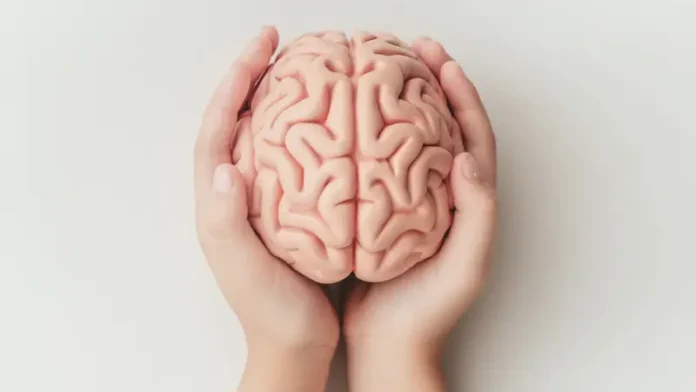Why Specialized Therapy Programs are Important
The term “therapist” is commonly used to describe different types of mental health professionals, but these experts can vary greatly in terms of skills, experiences, populations they work with, and specialty focus. While some therapists have an extensive base of general knowledge, others have chosen to specialize in certain areas and help distinct population groups overcome their challenges.
For example, some therapists focus particularly on treating veterans facing post-traumatic stress disorder (PTSD), while others may treat only children, couples, or clients with co-occurring mental health conditions and substance use disorders.
Therapy.com is user supported. We receive a commission fee from purchases made through BetterHelp links.
Learn More
These individuals have become experts in their focus areas, and bring extensive knowledge and skills to their practice. This gives them greater insight into the unique issues that these clients face and helps them recommend therapeutic solutions that best align with their needs.
Connecting with a therapist who specializes in working with your population group can yield many benefits. In addition to their targeted knowledge, they also have an inherent passion and interest in working with clients just like you. This can help you establish an engaging, respectful, and creative partnership that will get you closer to your treatment goals.
Veterans & First Responders
Military personnel and first responders are on the front lines of some of life’s most traumatic experiences. Their work requires them to come into regular contact with situations that elicit responses of shock and stress. As such, the prevalence of mental health challenges is high among this group.
In addition to psychological symptoms like nightmares, avoidance, and depression, these professionals may also experience physical symptoms of trauma such as increased heart rate, difficulty breathing, and muscle tension.
In addition, veterans who have suffered a traumatic brain injury (TBI) may have additional mental health concerns to navigate. Therapists who specialize in treating this population are extensively trained in trauma-focused techniques and can share healthy coping strategies to help clients manage their symptoms.
Learn more about therapy for veterans and first responders.
Couples
Romantic partnerships can directly affect one’s mental health, both positively and negatively. When couples are well-aligned, the security that comes from companionship can lead to feelings of contentment and general well-being. However, couples who experience ongoing conflicts may feel adverse effects.
When couples fall into unhealthy patterns, the stress that develops can lead to low self-esteem as well as depression and anxiety among one or both partners. A couples therapist will work with the pair to understand their needs, alleviate tension, and restore peace within the relationship.
This often means showing the couple how to communicate more clearly and resolve conflicts in a mutually respectful way. The therapist may also dive into issues like family dynamics or past experiences to better understand and address the root of the discontent.
Learn more about couples therapy.
LGBTQ+
Members of the LGBTQ community can face personal and societal pressures that make them more susceptible to mental health risks. This often stems from a lack of equitable access to basic resources like housing, employment, and healthcare. They may also experience feelings of isolation and rejection in social or familial situations.
This stigma and discrimination can increase these individuals’ risk of developing conditions such as depression, anxiety, and PTSD. An LGBTQ-affirming therapist will be trained in validating and affirming their clients’ unique perspectives and experiences.
They will work to cultivate an environment of safety and acceptance, empowering individuals to embrace and overcome both personal challenges and public conflicts.
Learn more about LGBTQ+ therapy programs.
BIPOC
Individuals who identify as part of the Black, Indigenous, and People of Color (BIPOC) community must often overcome systemic challenges, including discrimination and racism, in their everyday lives. Not only can this heighten their risk of developing mental health issues like depression and anxiety, but it can also hinder them from seeking the care they need.
Therapy.com is user supported. We receive a commission fee from purchases made through BetterHelp links.
Learn More
A therapist who specializes in serving BIPOC clients will deliver culturally sensitive care that caters to their unique perspectives and lived experiences. They can help clients overcome their racial trauma, challenge stigmas, and take steps toward healing.
Dual Diagnosis Programs
Sometimes, mental illness and substance use disorder (SUD) can occur at the same time. This is known as a dual diagnosis. It’s usually most effective to treat both issues concurrently, rather than one at a time.
Individuals with a dual diagnosis require a fully integrated approach that may combine behavioral therapies like cognitive behavioral therapy (CBT) with other treatments such as medication and peer-based support groups.
Therapists who specialize in dual diagnosis treatment are uniquely trained to address a client’s mental health and substance misuse. They’ll work with each client to develop an individualized treatment plan that includes relapse prevention training for long-term wellness.
Physical Disabilities
Individuals who are living with physical disabilities can also experience emotional challenges, especially if their condition significantly hinders their quality of life or makes social situations difficult.
This ostracization can lead to feelings of isolation, which triggers mental health conditions like depression, anxiety, or PTSD. In addition to treating these conditions, therapy can also help clients build their self-esteem, develop critical coping skills, and learn how to express themselves comfortably.
A therapist who understands the connection between physical and emotional health can help clients better understand and overcome any limiting thoughts they might have about their disability. They can also teach actionable ways for clients to self-advocate, overcome discrimination, and reduce mental distress in their day-to-day lives.
Trauma & Abuse Survivors
Someone who’s survived any form of trauma or abuse may require specialized therapies to move beyond the painful circumstances of their past.
Often, traumatic events can lead to PTSD, depression, and feelings of self-blame or guilt. Individuals may also turn to drugs or alcohol to cope with their memories and emotions, which can lead to substance use disorder. Some may suffer from suicidal ideation or relationship difficulties.
A therapist who specializes in this capacity will have experience using proven, evidence-based techniques, like Eye Movement Desensitization and Reprocessing (EMDR), and creating a safe, inclusive environment for healing.
You can even find therapists who are specially trained in the specific type of trauma you experienced, such as medical trauma or domestic violence.
Faith Based Programs
Faith-based therapy combines spiritual principles with conventional counseling methods to help clients optimize their mental health.
This approach emphasizes activities like praying, reading religious texts, and attending one-on-one counseling sessions as cornerstones of healing. It draws on the idea that strengthening your connection with a higher power can bring you comfort in your time of need.
A faith-based therapist will draw on the principles of a given religion to help clients heal in a whole-person, holistic manner. They may also incorporate clinical methods, such as CBT, in addition to spiritual work. Their practice will be consistent with their personal convictions, or that of the organization they work for.
Learn more about faith-based therapy.
Therapy.com is user supported. We receive a commission fee from purchases made through BetterHelp links.
Learn More
Other Important Factors to Consider
Choosing the Right Type of Therapy
As you look for the right therapist, it’s also important to consider the different treatment types available. Therapists who specialize in serving a specific population may also offer different types of programs based on their interests, experience, and expertise.
For instance, a therapist who treats veterans, first responders, or survivors of abuse might offer trauma-focused therapy, while someone who specializes in dual diagnosis may utilize behavioral or humanistic methods.
Other offices may have a broader focus, incorporating several techniques and tailoring your treatment plan to your unique needs. It’s helpful to learn about different approaches so you can find the best fit.
Explore treatment by type of therapy.
How Treatment Varies by Condition
To be effective, therapy must also be customized to your specific mental health condition. A treatment plan designed to treat PTSD might not be as helpful for someone who suffers from bipolar disorder. Your therapist will take the time to listen to your concerns to understand which treatment will bring you closer to your goals.
Some conditions are more prevalent in certain populations than others. For example, individuals who are stigmatized or face ongoing discrimination might be more likely to suffer from anxiety or depression, while someone with a physical disability may suffer primarily from PTSD. Learning more about your condition can be a helpful first step toward finding the support you need.
Explore treatment by mental health condition.
Therapy.com is user supported. We receive a commission fee from purchases made through BetterHelp links.
Learn More
Medications Used in Treatment
Therapists may recommend different kinds of psychotropic medications to help treat certain mental health disorders. These medications work by adjusting the level of neurotransmitters in your brain.
You can think of neurotransmitters as your body’s chemical messengers because they carry signals from your nerve cells to other target cells. They help regulate many important functions like your mood, sleep, muscle movement, and heart rate.
Antidepressants are one class of medications. These increase the levels of serotonin in your brain and can help alleviate symptoms of depression and anxiety. Other common psychotropic medications include antipsychotics, used to treat schizophrenia and bipolar disorder, mood stabilizers, and stimulants.
Your therapist will help you understand which medications are best for you and what side effects may occur as you begin a regimen.




